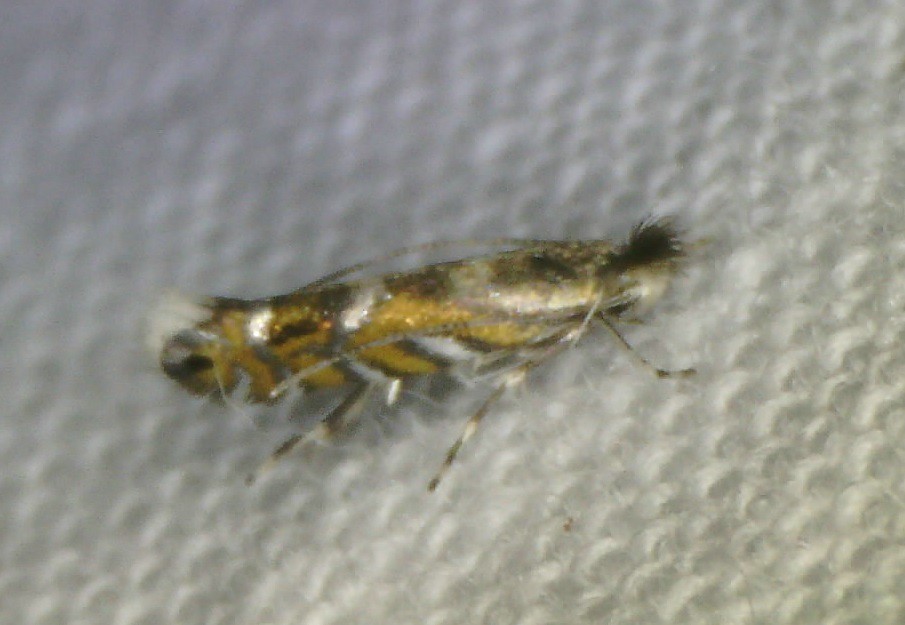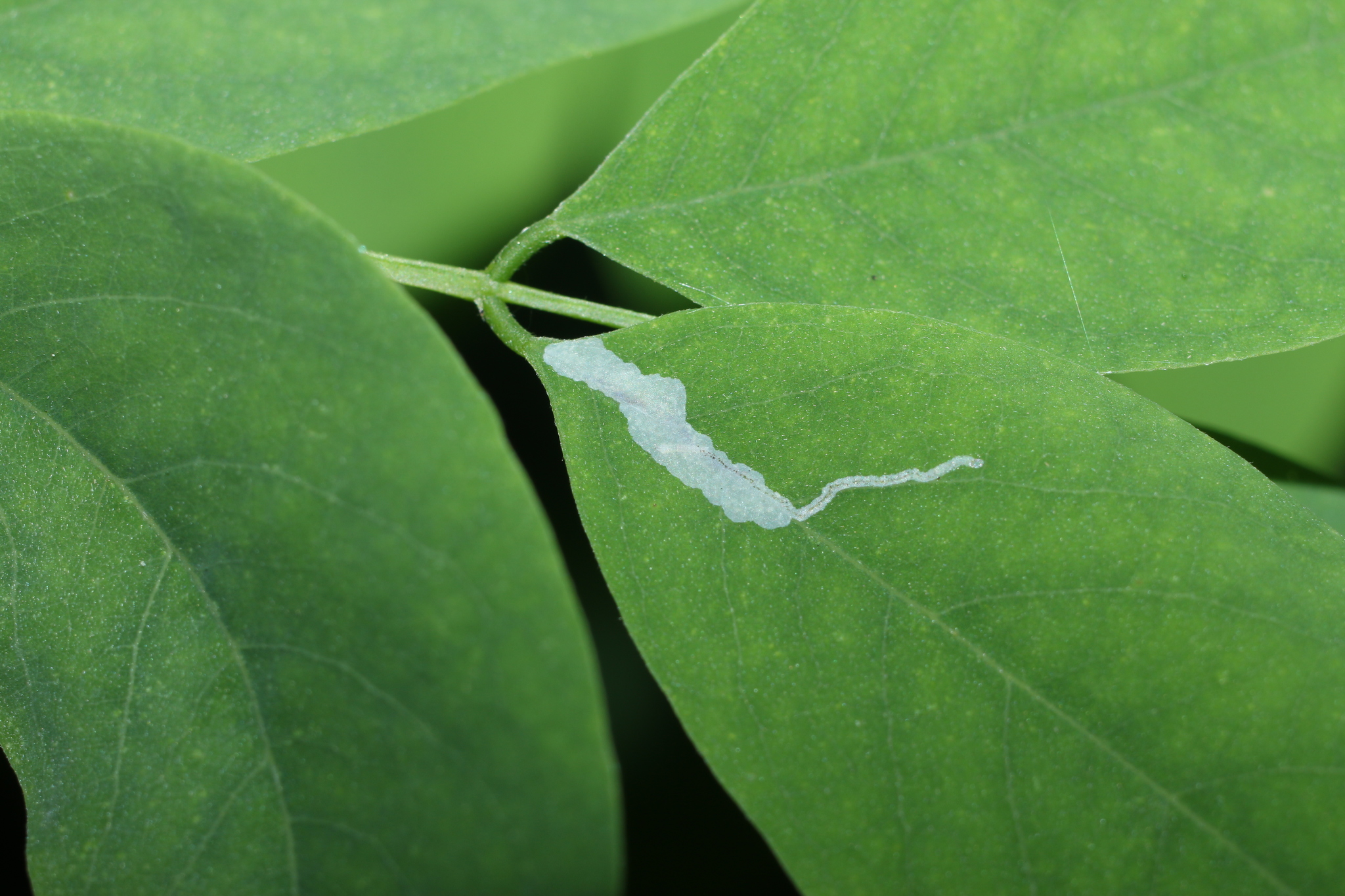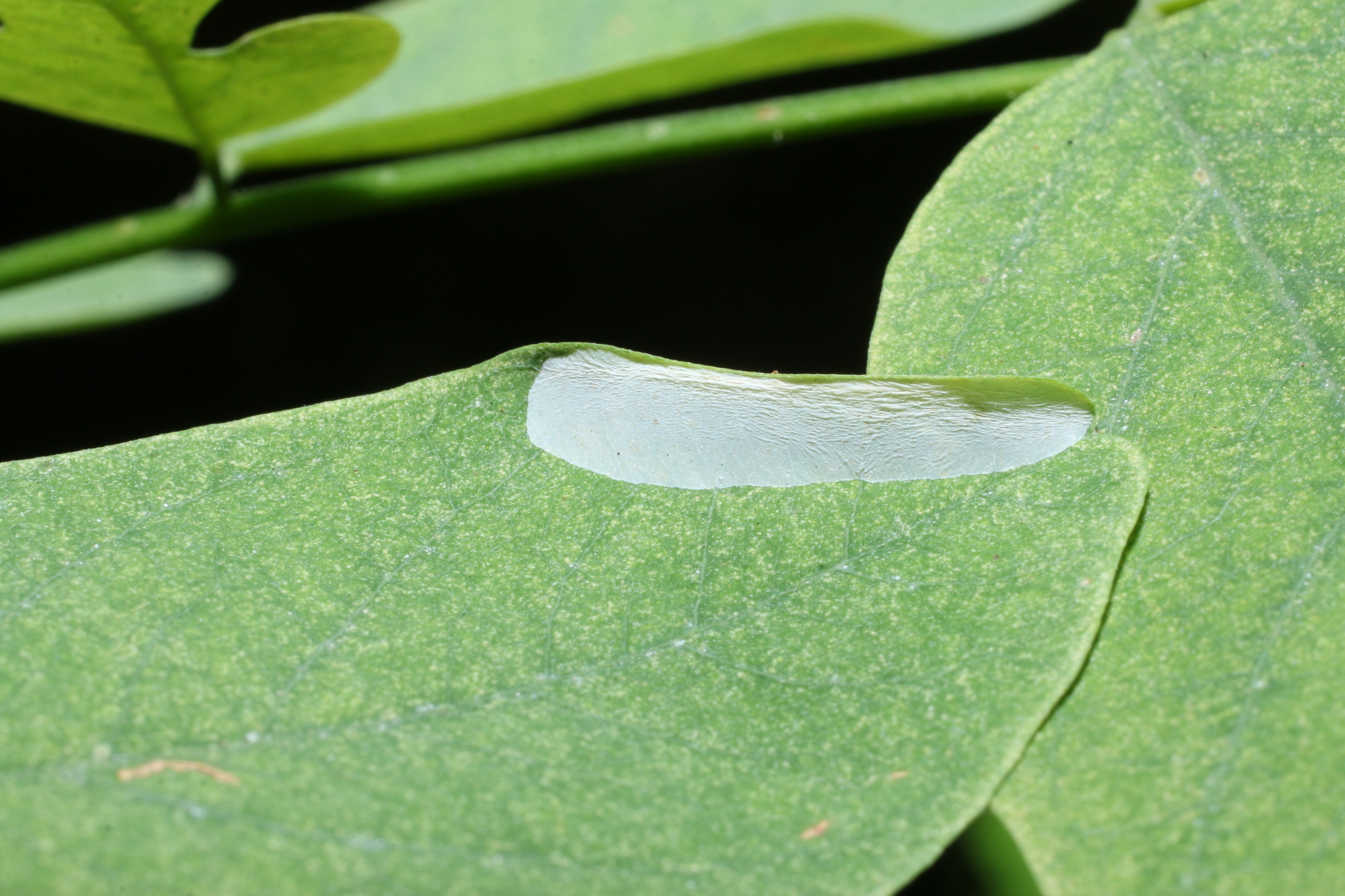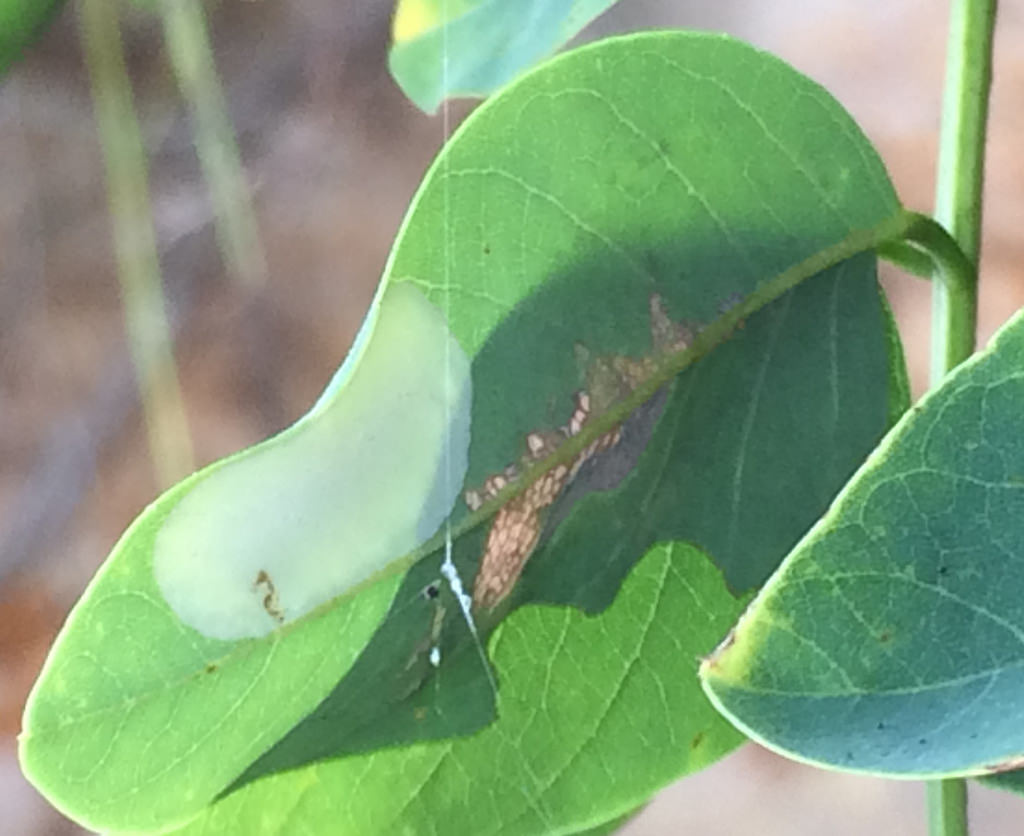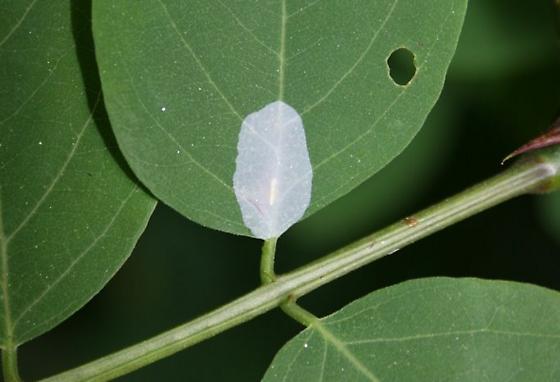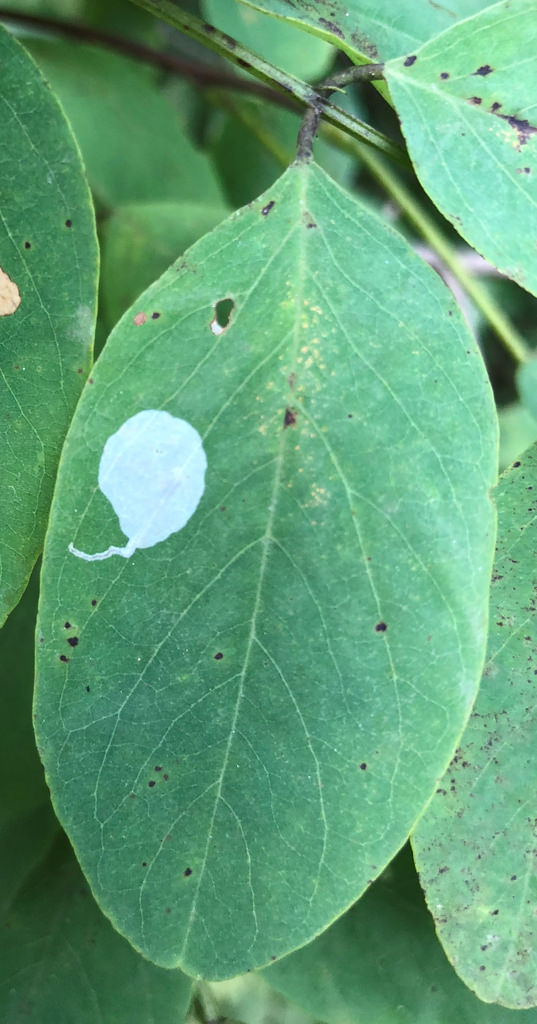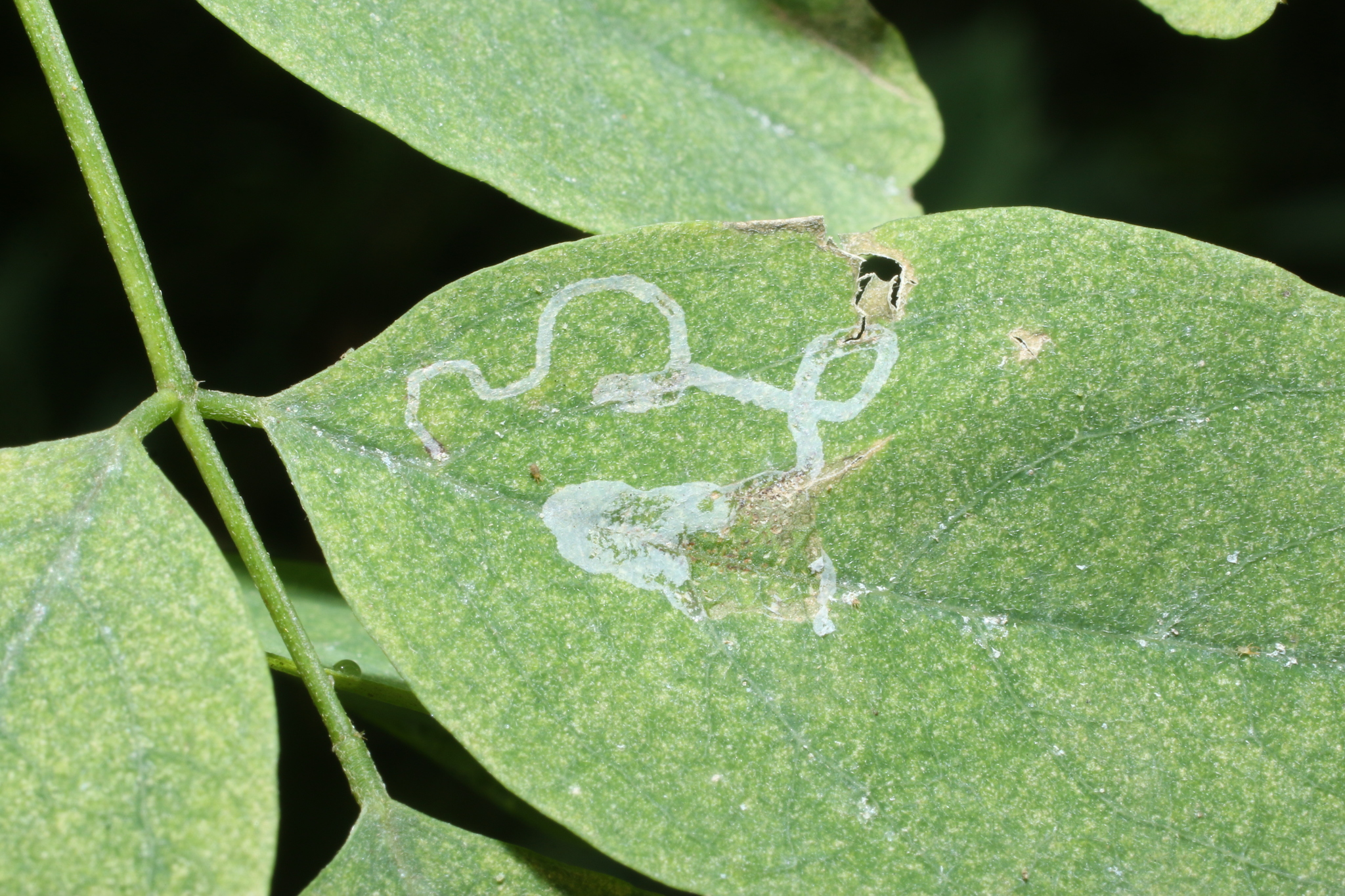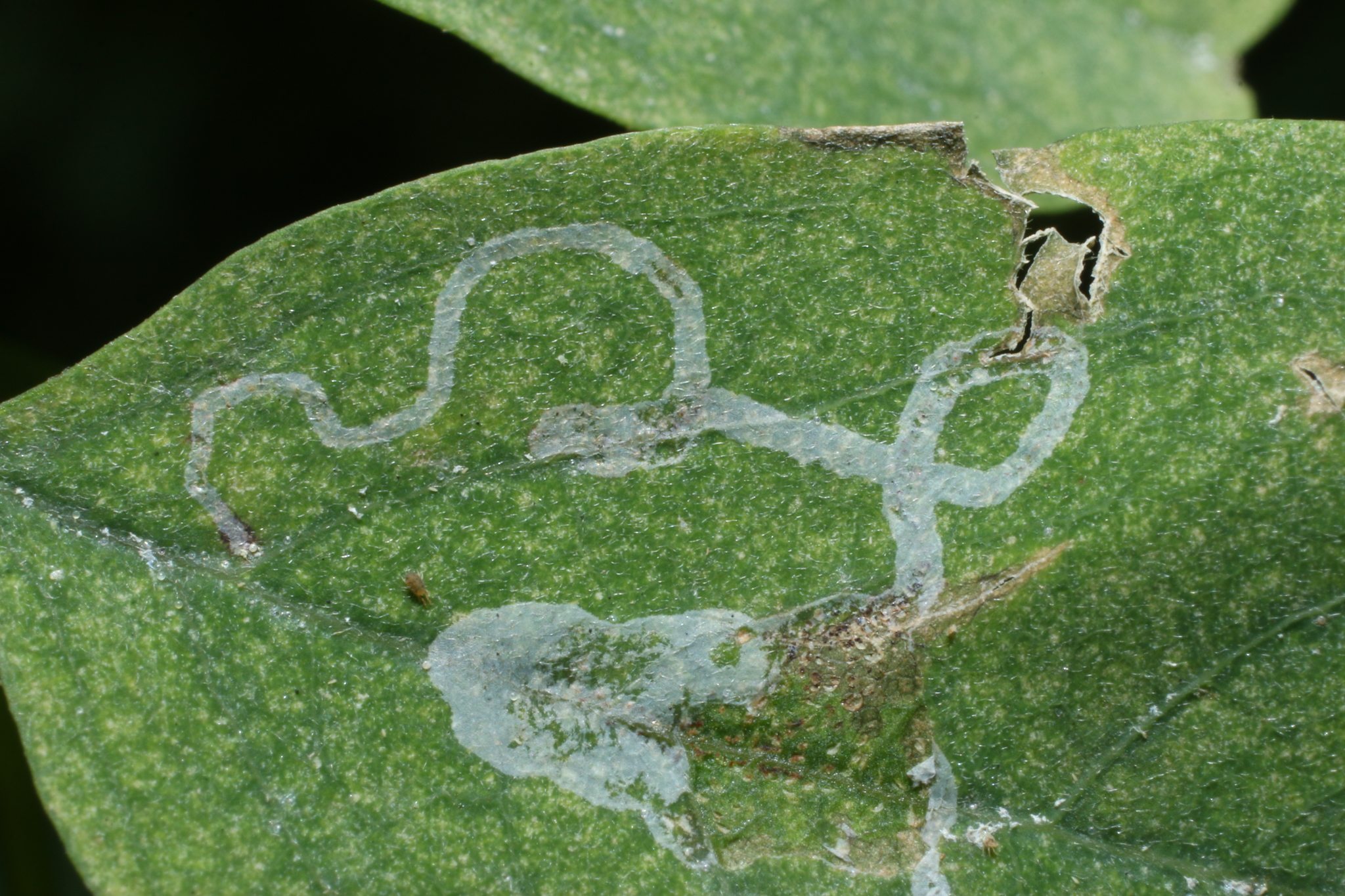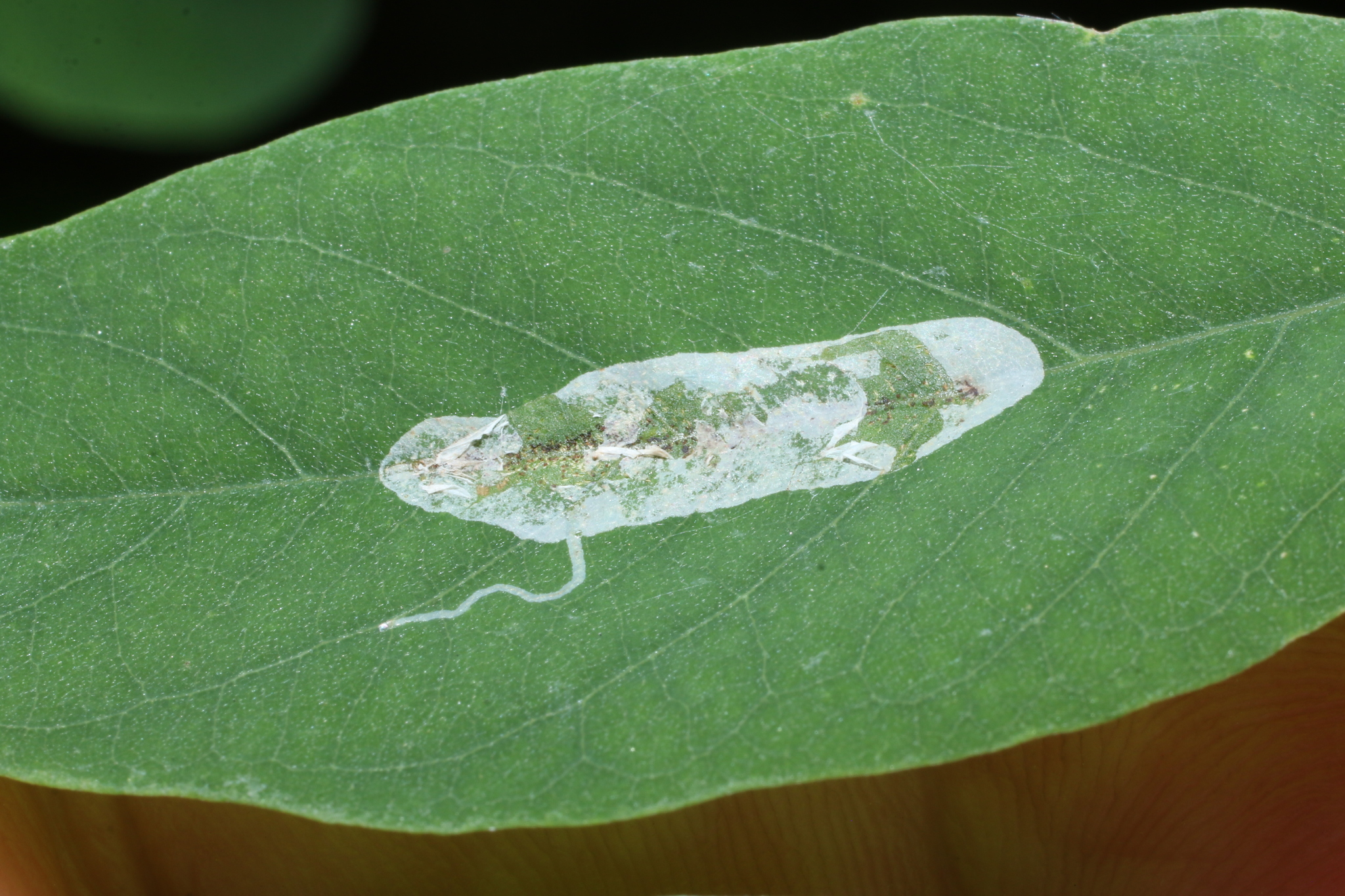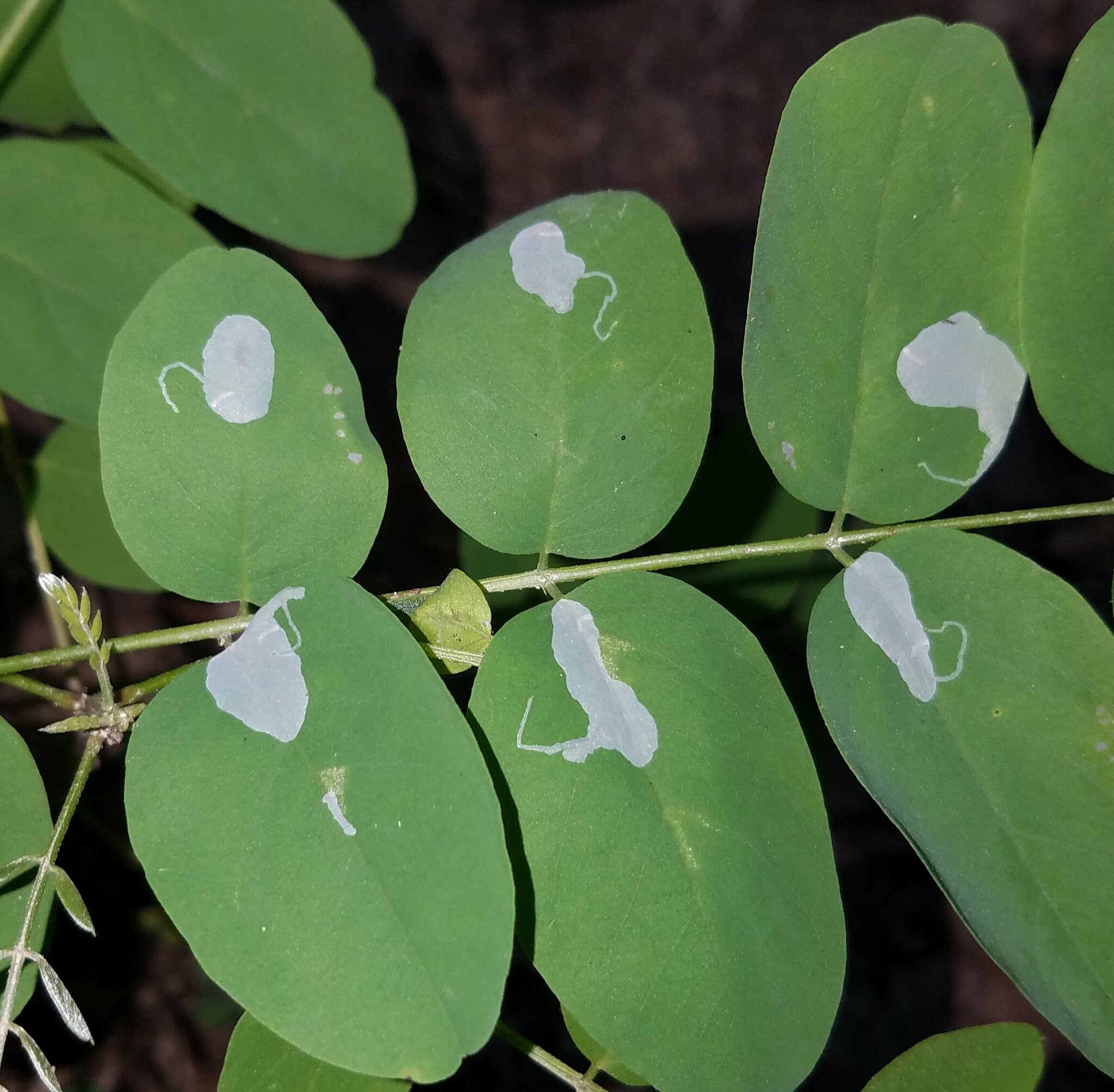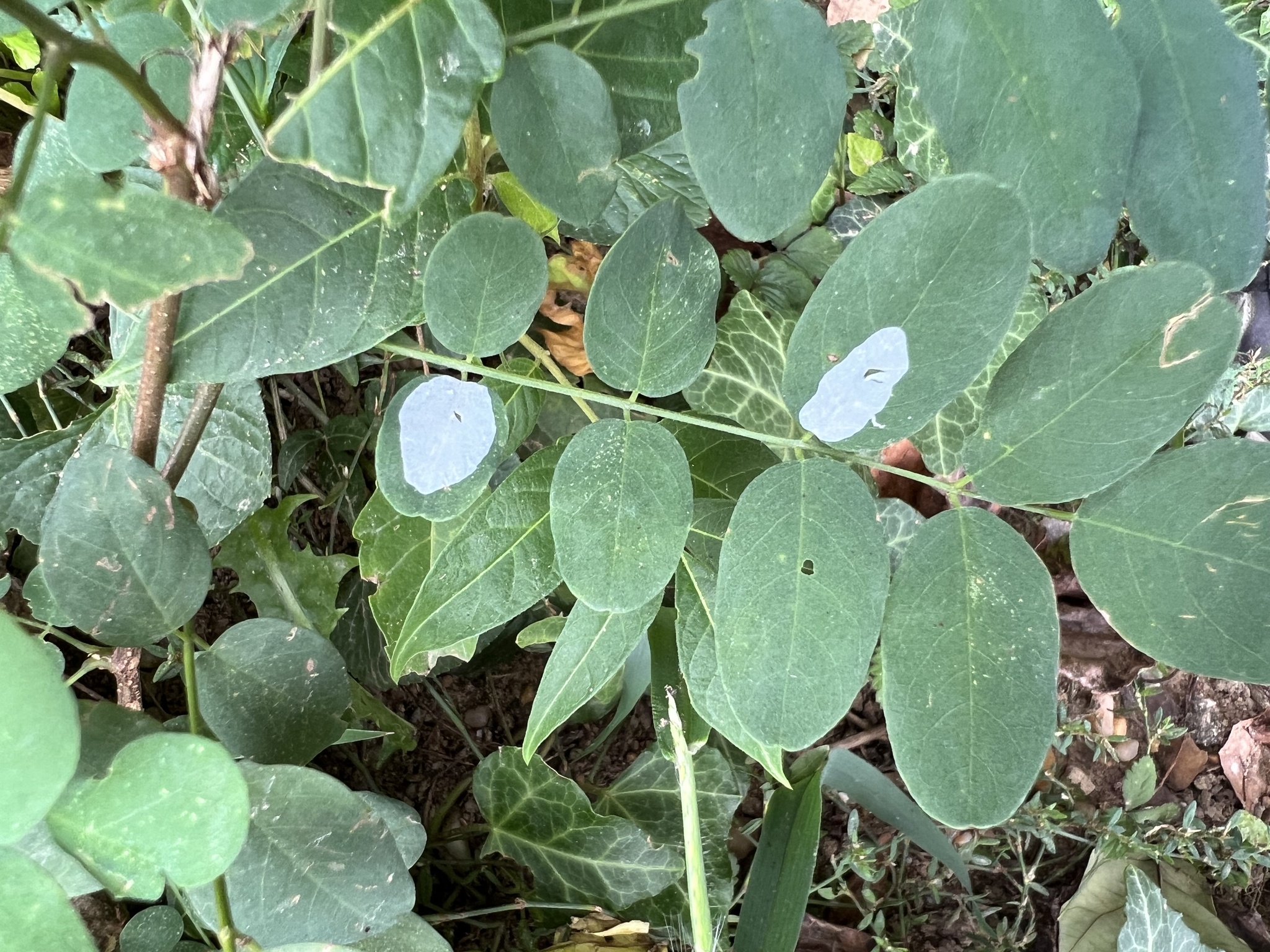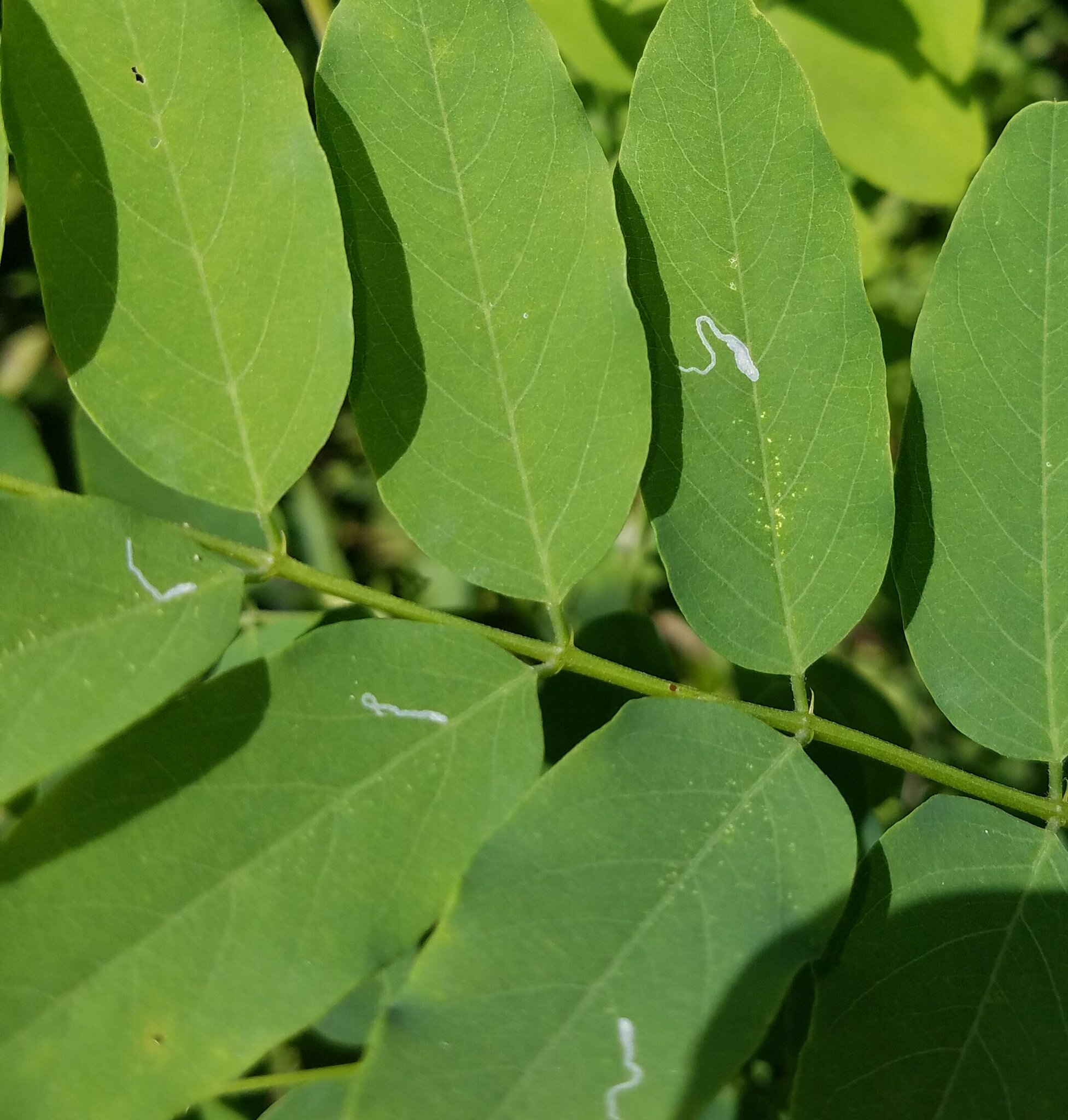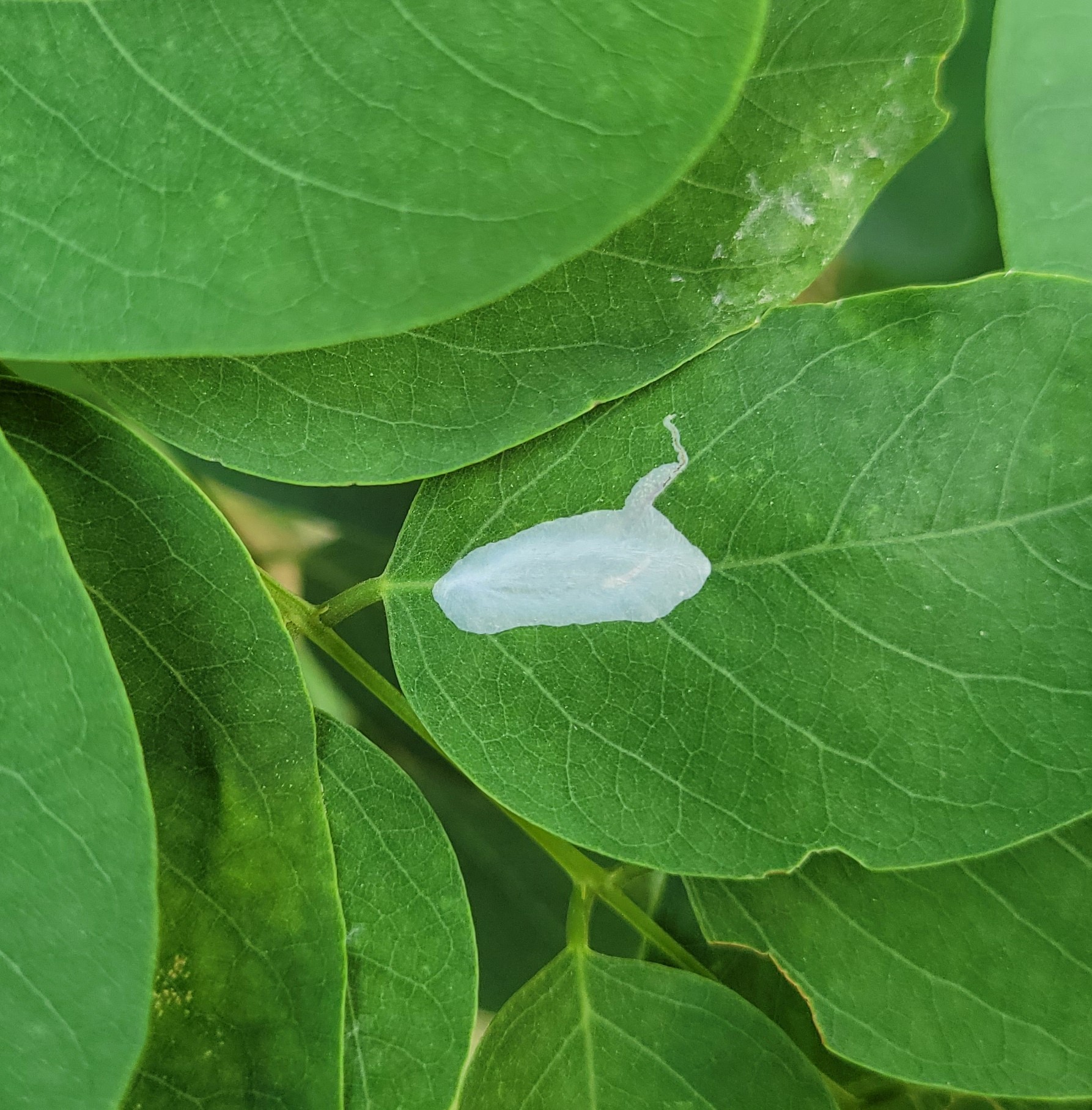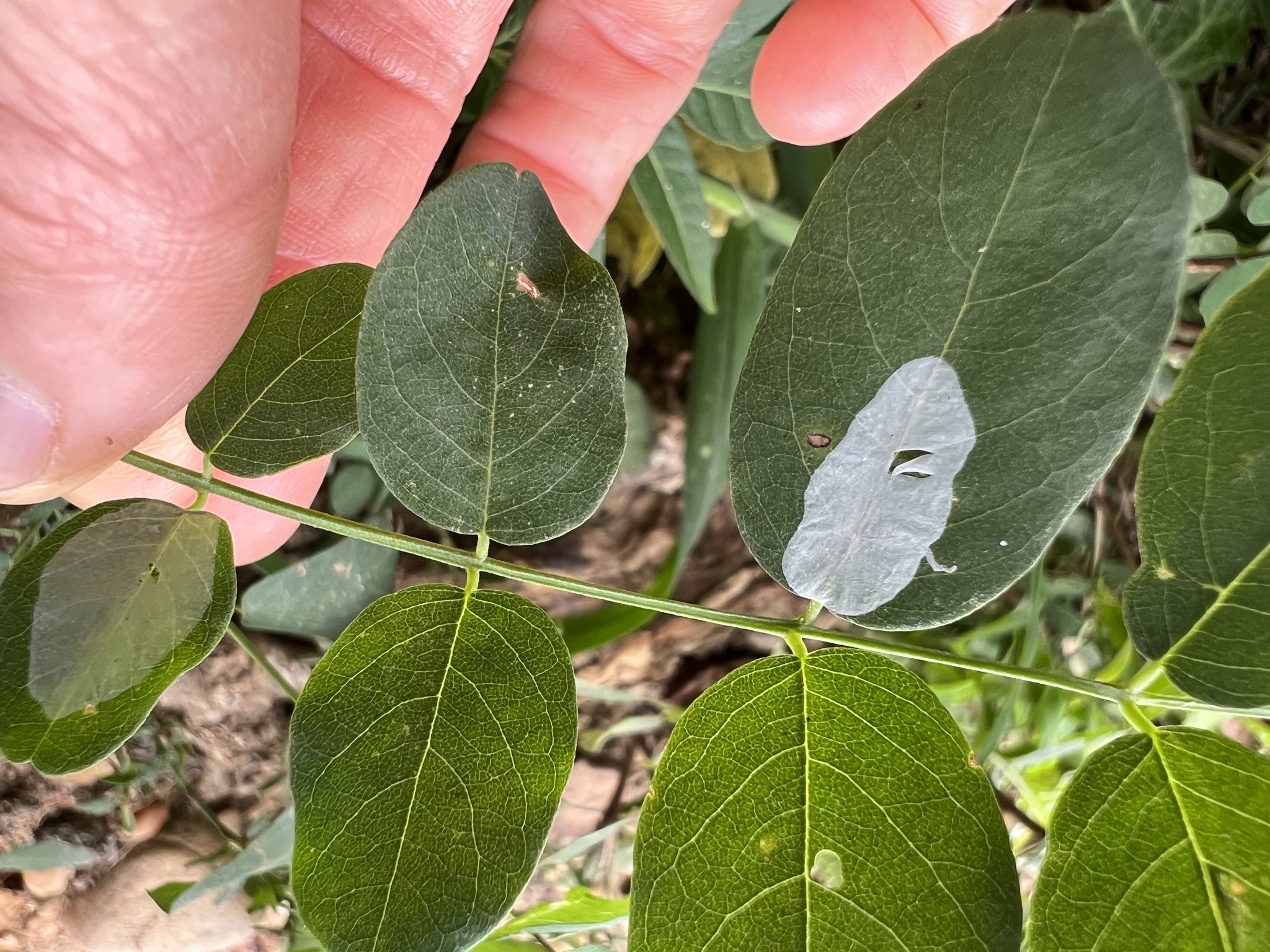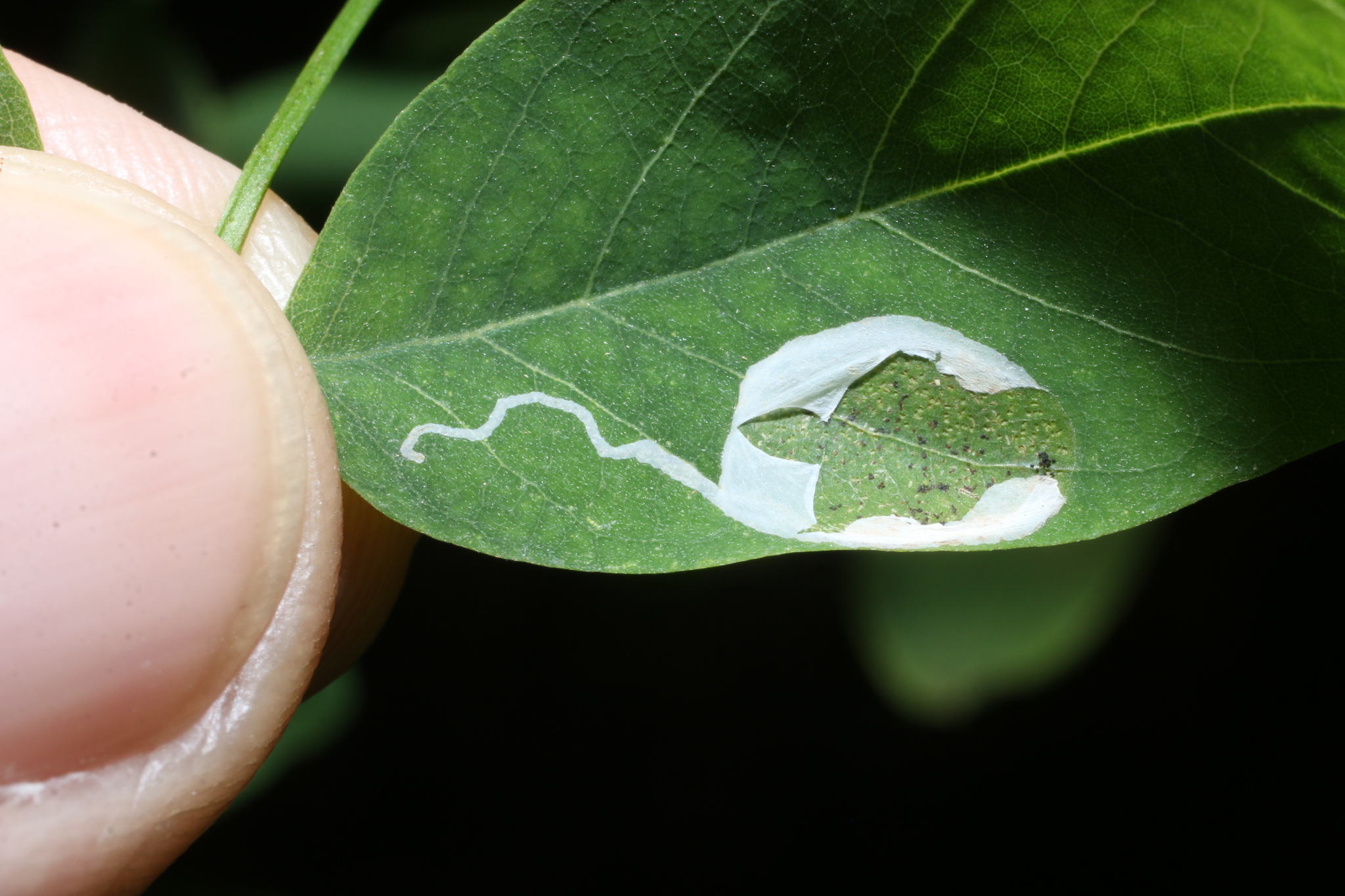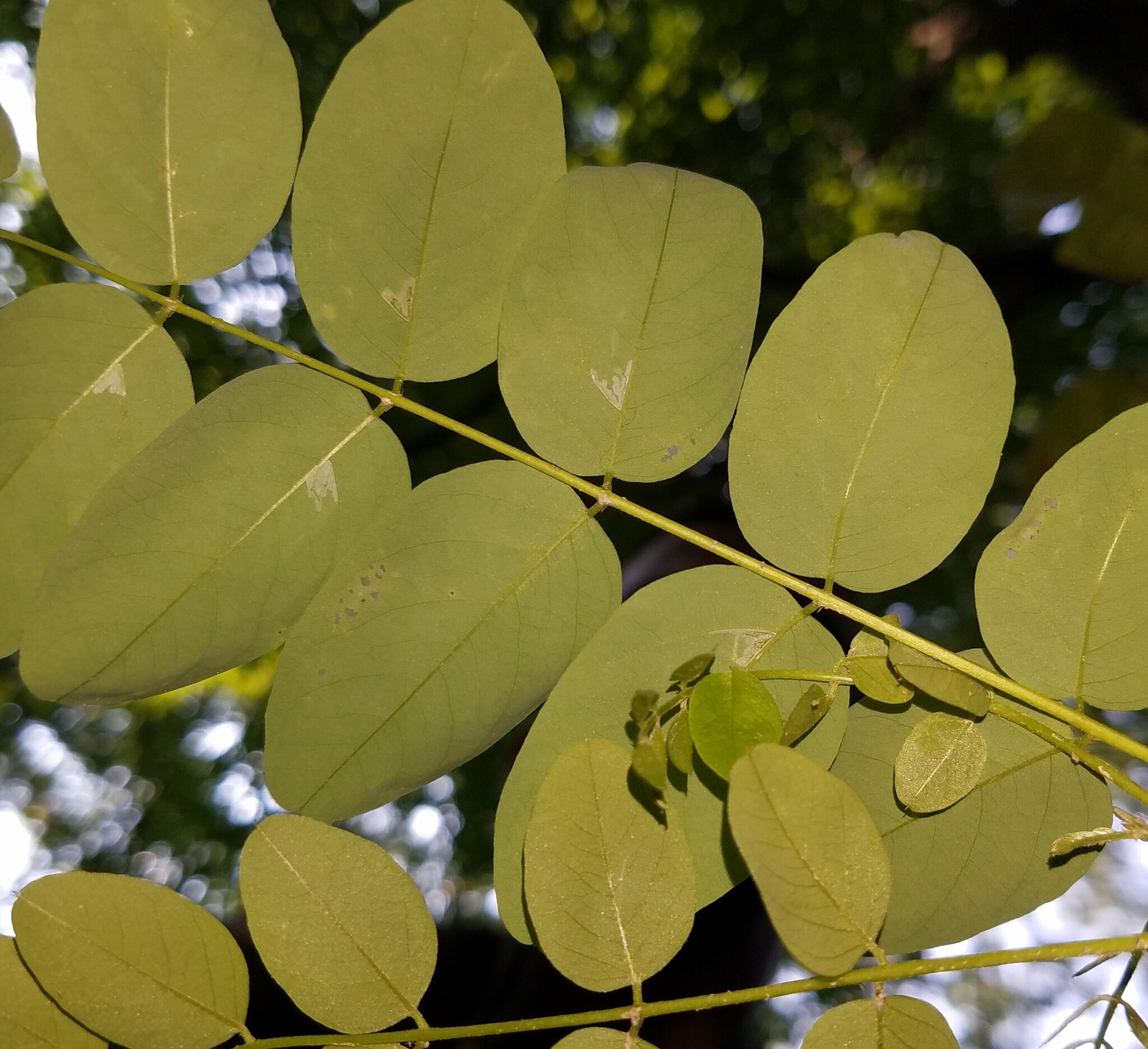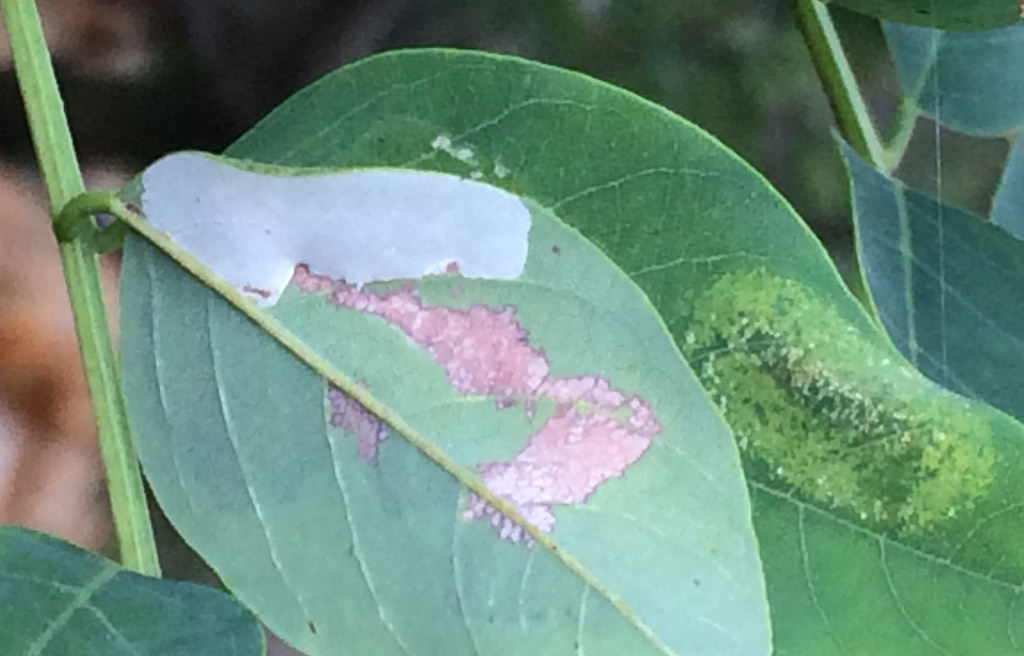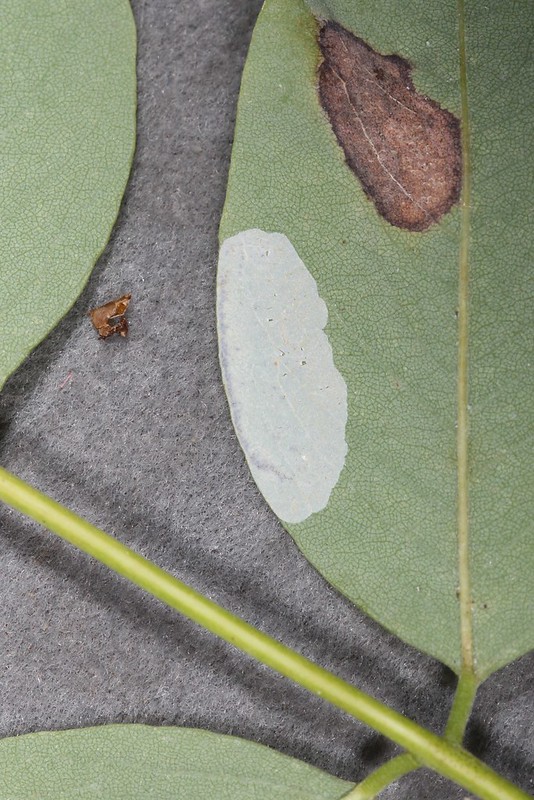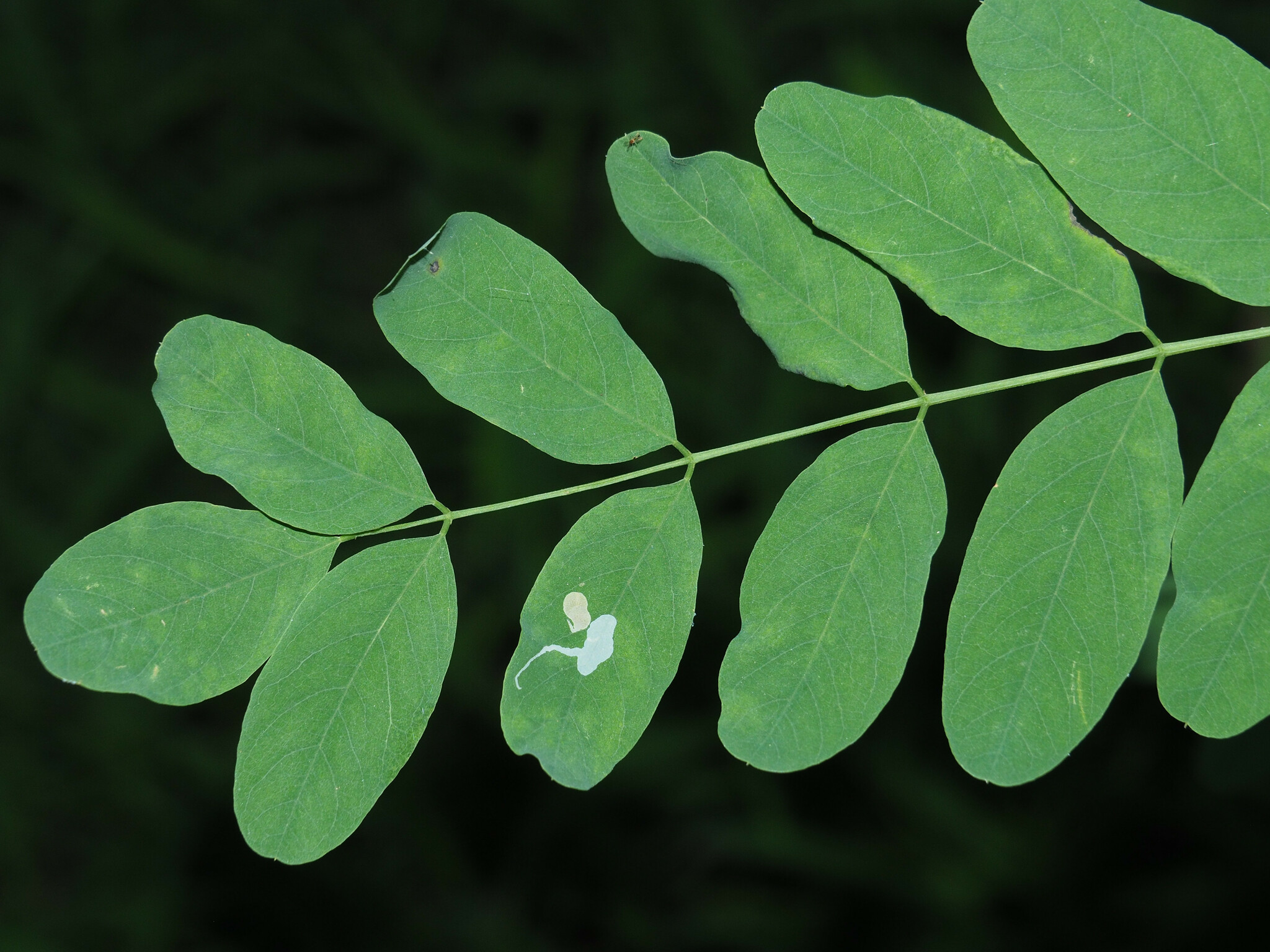Map Snapshot













28 Records
Seasonality Snapshot
Source: Wikipedia
| Macrosaccus robiniella | |
|---|---|

| |
| Adult | |

| |
| Scientific classification | |
| Domain: | Eukaryota |
| Kingdom: | Animalia |
| Phylum: | Arthropoda |
| Class: | Insecta |
| Order: | Lepidoptera |
| Family: | Gracillariidae |
| Genus: | Macrosaccus |
| Species: | M. robiniella
|
| Binomial name | |
| Macrosaccus robiniella (Clemens, 1859)
| |
| Synonyms | |
| |
Macrosaccus robiniella is a moth of the family Gracillariidae.
Distribution
[edit]It is native to and widely distributed in North America,[1][2] but is an introduced species in Europe, where it was first reported near Basel, Switzerland, in 1983. Later, it was also reported in France, Germany, northern Italy (1988), Austria (1989), and Slovakia (1992). It spread gradually through Austria, reaching Hungary in the mid 1990s.
Adult description
[edit]The wingspan is 5.5 to 6.5 mm. There are two to three generations per year.
Life history
[edit]The larvae feed on Robinia pseudoacacia, Robinia viscosa and Robinia hispida. They mine the leaves of their host plant. The mine begins as an elongate serpentine track which enlarges to an elongate-oval, whitish blotch located on one side of the midrib and usually on the underside of the leaflet. Eventually the mine becomes slightly tentiform due to the silk laid down by the later instar larvae. There are five larval instars. The earliest instars are highly modified sapfeeders with strongly depressed bodies and reduced chaetotaxy with a maximum length 3.7 mm. Later instars are tissue feeders, with cylindrical bodies and a maximum length of 4.7 mm. The body colour is pale green to white.[2]
Natural enemies
[edit]Fifty seven parasitoid species (including two unidentified) of Hymenoptera are recorded for M. robiniella, the great majority of which belongs to the family Eulophidae.[2]
Gallery
[edit]-
Larva
-
Larva on a leaf
-
Close-up of damage
-
Leaf showing damage by Macrosaccus robiniella
-
Cocoon
References
[edit]- ^ Gregory R. Pohl; Jean-François Landry; Christian Schmidt; et al. (2018). Annotated checklist of the moths and butterflies (Lepidoptera) of Canada and Alaska. Series Faunistica. Vol. 118. ISBN 978-954-642-909-4. OL 32898597M. Wikidata Q97158808.
- ^ a b c Donald R Davis; Jurate De Prins (13 May 2011). "Systematics and biology of the new genus Macrosaccus with descriptions of two new species (Lepidoptera, Gracillariidae)". ZooKeys. 98 (98): 29–82. doi:10.3897/ZOOKEYS.98.925. ISSN 1313-2989. PMC 3095132. PMID 21594070. Wikidata Q21127871.
 This article incorporates text available under the CC BY 3.0 license.
This article incorporates text available under the CC BY 3.0 license.
External links
[edit]
